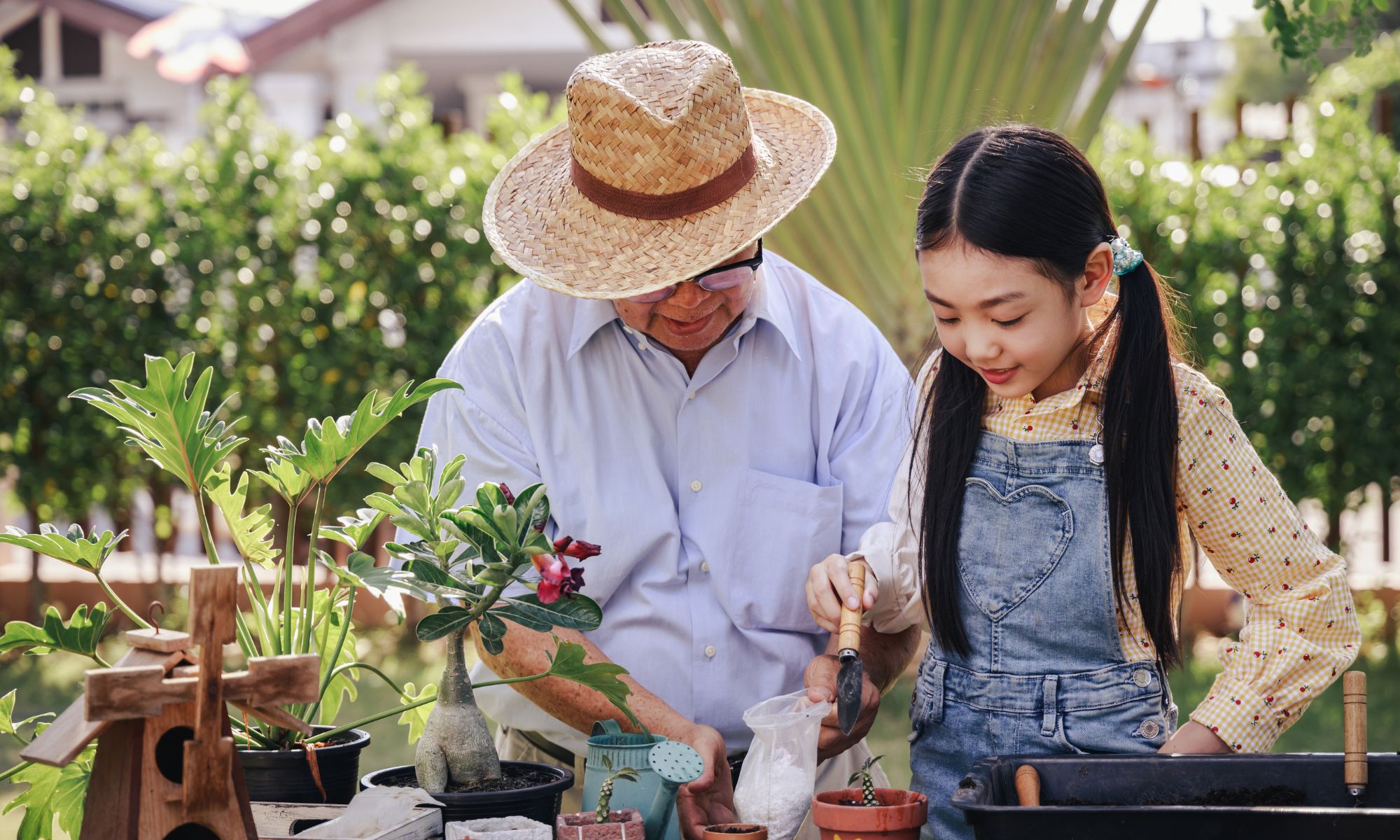A Long, Healthy Life Begins at Home
Home-related Longevity Factors
Published on January 30th, 2024

You may have heard of Blue Zones—regions where statistically large portions of the population enjoy long and vibrant lives. In his popular books and documentaries, Dan Buettner, a journalist and National Geographic Explorer and Fellow, recounts setting Guiness World records by cycling along the backroads of numerous countries. During his journeys, he met people who were happily living well into old age—sometimes beyond 100 years.
Intrigued, he began studying longevity in Okinawa, Japan in 2000, then worked with demographers and researchers to discover other areas of the world where people live exceptionally long lives with few health issues, including dementia.
So far, he and his team have identified several regions, which he refers to as Blue Zones: Ikaria, Greece; Nicoya, Costa Rica; Sardinia, Italy; Loma Linda, U.S.A.; and Okinawa, Japan. Despite significant differences in culture and geography, the elderly residents share most of these nine lifestyle factors: they move naturally, live with purpose, eat a mainly plant-based diet, manage stress, typically eat until just 80% full, drink the occasional glass of wine, participate in the community, put families first, and have good friends.
In his Netflix series, Live to 100: Secrets of the Blue Zones, Buettner visits a fit, 100-year-old man in Nicoya, Costa Rica, who rides horseback to herd his cattle to and from the river each day. Other Blue Zone subjects achieve similar results by tending a garden, cooking their own meals, and walking to do their errands.
You don’t need to relocate to a village in Costa Rica to have a long, healthy life, but the home you choose does matter, especially once you are in your retirement years. In fact, where you live directly impacts six of those nine key lifestyle factors: your ability to move naturally, manage stress, have a good diet, and connect with your family, community, and friends.
It is no coincidence that many Blue Zone residents are gardeners. The Royal College of Physicians Clinical Medical Journal states that “working in the garden restores dexterity and strength, and the aerobic exercise that is involved can easily use the same number of calories as might be expended in a gym. Digging, raking, and mowing are particularly calorie intense (Royal College of Physicians 2018).” The journal also notes that gardening lowers stress; exposure to sunlight lowers blood pressure and raises vitamin D levels; and the produce is a healthy addition to the diet. Also, exposure to the harmless soil bacteria mycobacterium vaccae while gardening has been found to increase serotonin levels (Medical News Today 2007). If it’s not possible to have a home with a vegetable plot, consider joining a community garden.
With advanced age, many people lose the ability or desire to drive a vehicle, so it’s helpful to live within walking distance of a grocery store or market that stocks healthy food and produce. This makes it easier to achieve two lifestyle factors: moving regularly and eating mostly unprocessed plant foods.
Living near family can be source of joy, companionship, and mutual assistance. For example, grandparents can babysit the grandchildren, and children can help their elderly parents with chores they can no longer manage. However, when moving closer to family is not feasible, you can still enjoy some positive benefits by keeping in touch via video chat, phone, etc.
Proximity to friends and community groups is also important. A strong social network is personally rewarding, and, in a crisis, it can be a source of vital support. If friends move on, take heart; one of the easiest ways to make friends and find purpose is through volunteer work. The best opportunity is one that allows you to regularly see the same group of people so that you can gradually form friendships (Glotzman 2021).
Living near a park is also impactful. Several studies have found that being in nature improves mood and mental health. If you are looking for an incentive to go outdoors, a four-legged friend, especially a rescue dog, will appreciate walking by your side in the fresh air and sunshine.
The structure of your residence can also affect how well you age. Stairs can become a barrier in the event of an injury or disability; preferably, the main level should contain the kitchen, laundry, a bathroom, and a bedroom. Size matters too. You want to have enough space to accommodate your hobbies, guests, and belongings, but you don’t want a property that is so large it becomes a burden to clean, maintain, heat and cool.
A long and vibrant life really does begin at home.
Sources:
Blue Zones. Accessed January 2024. https://www.bluezones.com.
Healthline. Jillian Goltzman (medically reviewed by Jacquelyn Johnson, PsyD.). “10 Tips for Making Friends at Any Age, According to Experts.” https://www.healthline.com/health/how-to-make-friends-at-any-age#volunteer
Medical News Today. Catharine Paddock, Ph.D. April 2, 2007. “Soil Bacteria Work in Similar Way to Antidepressants.” https://www.medicalnewstoday.com/articles/66840#1
Royal College of Physicians. Thompson R. Clin Med (Lond). June 18, 2018. “Gardening for health: a regular dose of gardening.” https://www.ncbi.nlm.nih.gov/pmc/articles/PMC6334070/#:~:text=Why%20does%20gardening%20seem%20to,positive%20impact%20on%20the%20diet.
Powered by Froala Editor